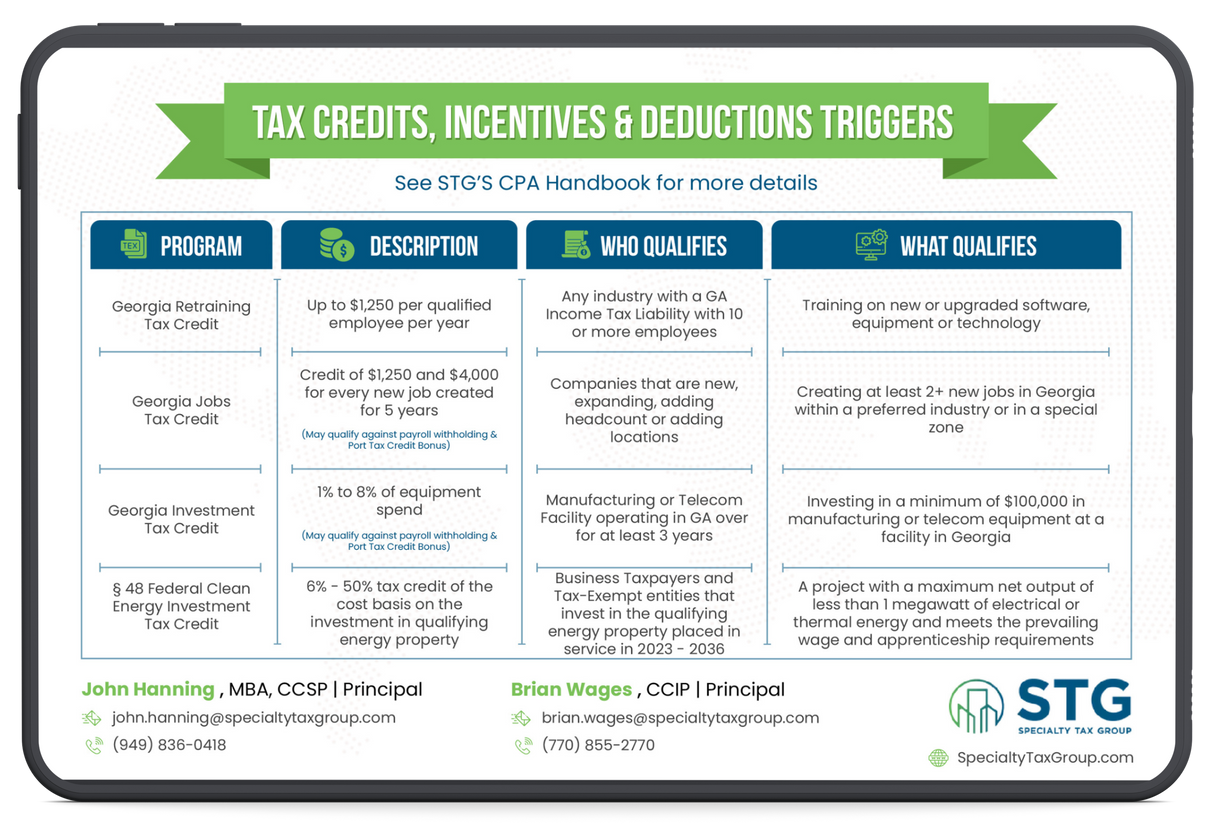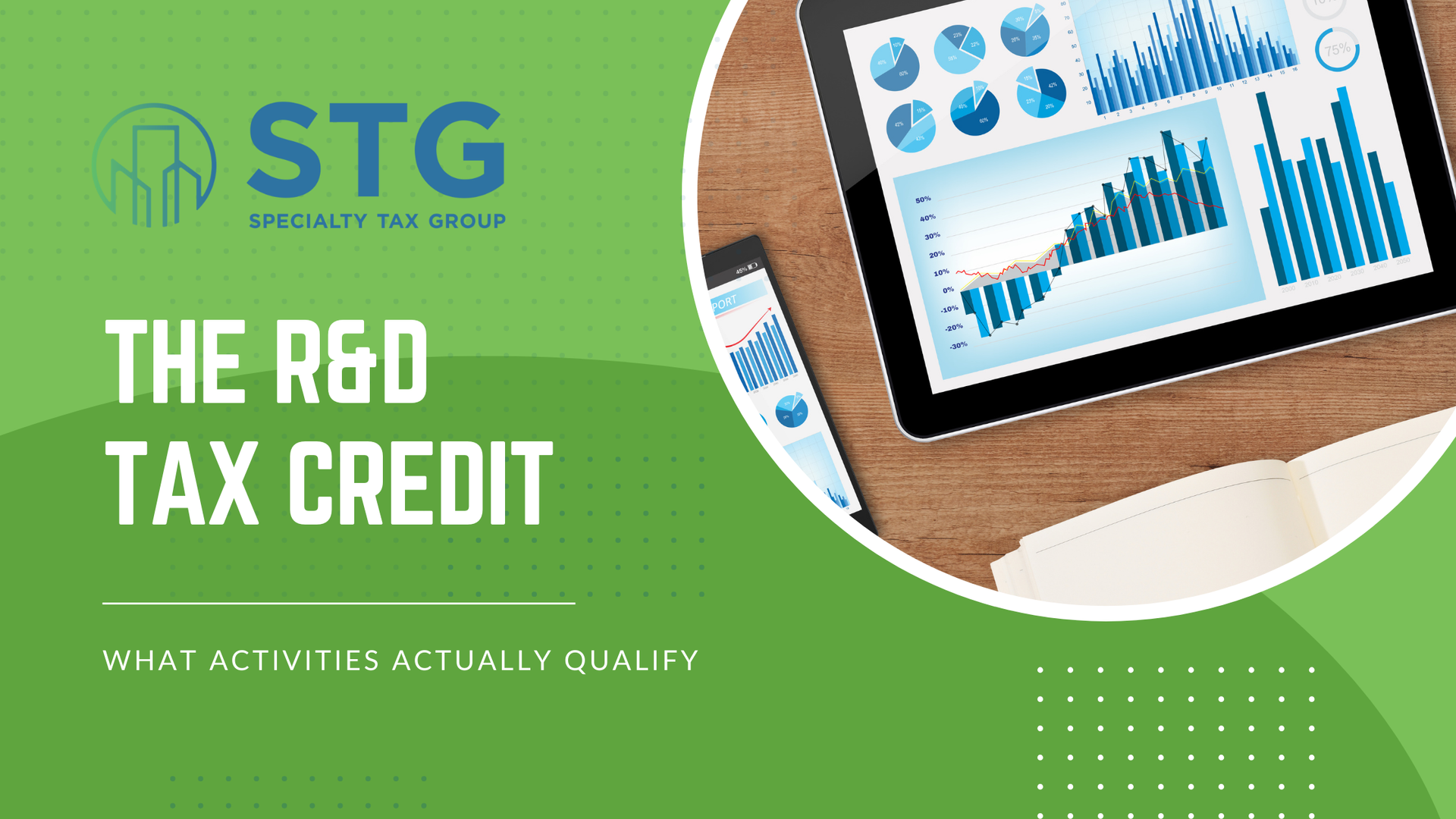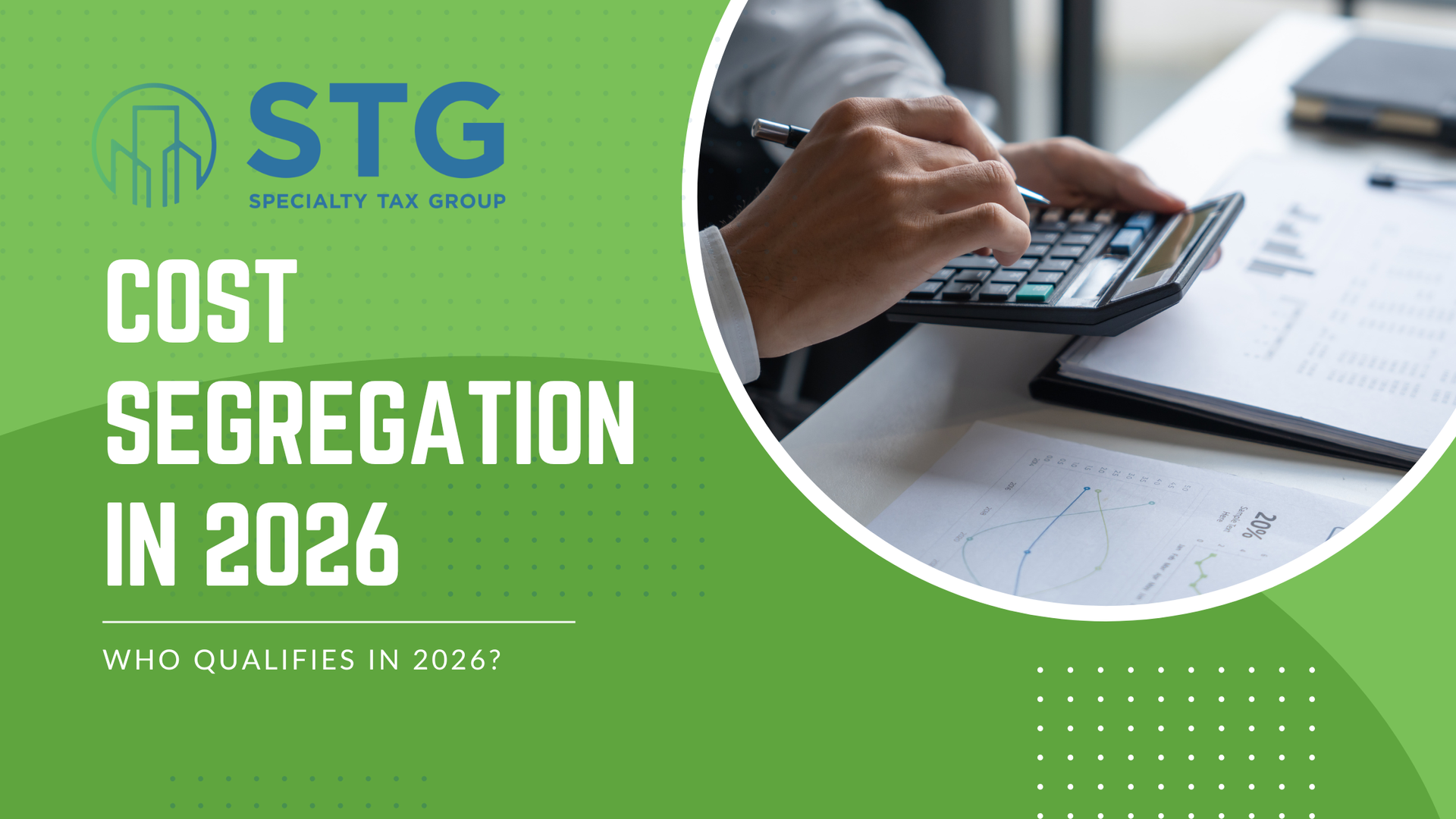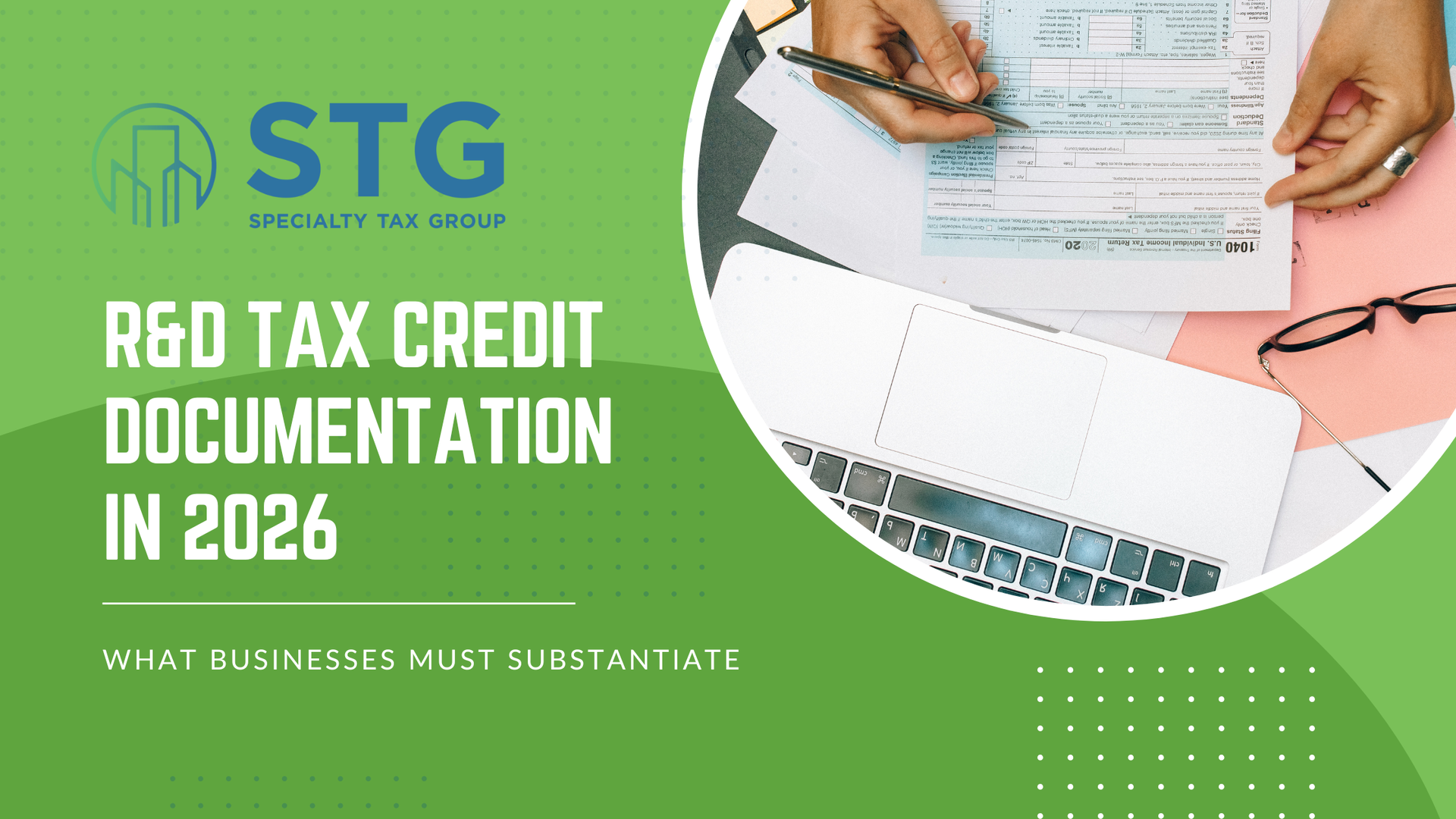This blog post has been researched, edited, and approved by John Hanning and Brian Wages. Join our newsletter below.
Job Details

Description
At STG you need to have a strong sense of TEAM. Individuals who thrive at STG exhibit the following success skills – Collaboration, Critical Thinking, Emotional Intelligence, Growth Mindset and Results Focused. They respect their clients, colleagues and themselves. They are generous with praise and constructive with criticism.
This is an entry-level role and there will be extensive training and career progression opportunities within the Specialty Tax Group. These opportunities apply to all interested parties with the basic qualifications and a desire to develop in this field.
Core Responsibilities:
- Writing cost segregation reports, reviewing engineered drawings, and estimating projects while ensuring quality control
- Managing projects to meet client expectations by the pre-established deadlines
- Writing and reviewing reports and preparing schedules that support findings in accordance with IRS standards
- Performing physical site inspections of properties in order to take detailed notes, sketches or measurements and photographing the various components of the property for IRS audit substantiation purposes
- Analyzing construction general ledgers, contractor payment applications, and other cost/financial documentation, and reconciling the information to various accounting records
- Reading, interpreting and estimating take-off quantities from blueprints and other cost information provided by clients
Basic Qualifications:
- Bachelor’s degree in construction management, electrical, mechanical or civil engineering
- Knowledge of real estate appraisals and valuations
- Excellent Microsoft Office skills - Excel, Word, Outlook, etc.
- Ability to travel approximately 25% of the year
- Prioritize projects based on deadlines
- Detail-oriented, well organized and possesses the ability to multi-task
- Strong verbal communication and strong technical writing skills
Preferred Qualifications:
- Strong understanding of construction design and processes as well as depreciation, in order to determine the appropriate tax lives for building assets in accordance with IRS standards
- A working knowledge of IRS code sections, court cases, revenue rulings and other tax citations related to cost segregation
- Ability to manage multiple engagements and competing projects in a rapidly growing, fast-paced, interactive, results-based team environment
- Knowledge of building systems, construction techniques, and construction cost documentation (i.e. AIA forms G702 and G703, change order logs, project cost summaries, etc.)
- Knowledge of construction cost estimating, and experience using Marshall & Swift Valuation Service and R.S. Means
- General understanding of Federal tax law relating to fixed assets and depreciation (Section 1245 and 1250 property, Rev Proc. 87-56, IRC 168, etc.), Federal tangible property regulations and the Tax Cuts and jobs Act
*After clicking Apply Now you will be directed to Rea & Associates' website who are assisting with the hiring process for this position.





